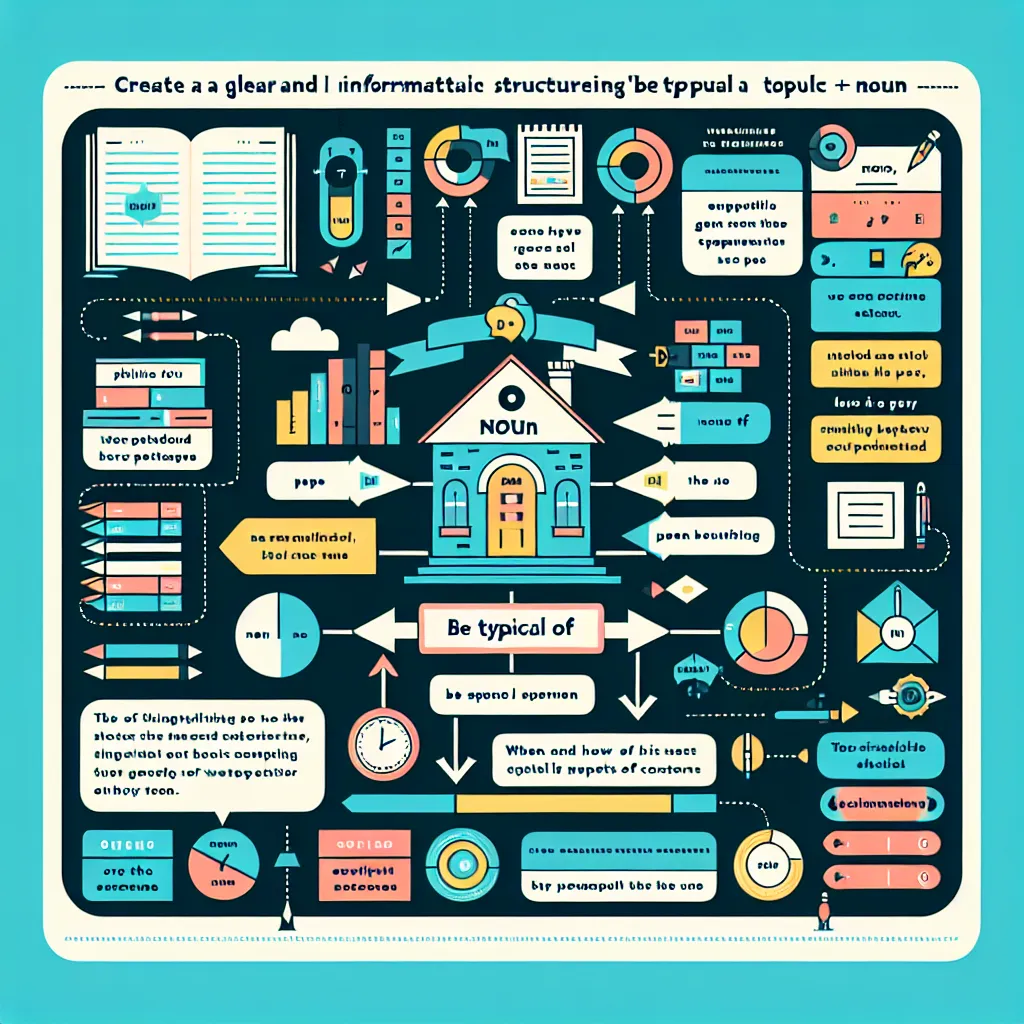Understanding and using the phrase “be typical of + noun” correctly can significantly enhance your IELTS performance. This structure is commonly used to describe characteristics or behaviors that are representative of a particular group, person, or thing. Let’s explore how to master this phrase and apply it effectively in your IELTS exam.
Understanding “Be Typical of + Noun”
The phrase “be typical of + noun” is used to express that something is a common or characteristic example of a particular group or category. It’s a versatile structure that can be applied in various contexts, making it valuable for IELTS candidates aiming to demonstrate their language proficiency.
Formula:
[Subject] + be/is/are/was/were + typical of + [noun]
For example:
- “This behavior is typical of teenagers.” (describing a common characteristic)
- “Her attention to detail is typical of a professional designer.” (highlighting a professional trait)
- “The rainy weather is typical of London in autumn.” (describing a common environmental condition)

Using “Be Typical of + Noun” in IELTS Writing
Incorporating this structure in your IELTS Writing task can help you express ideas more precisely and showcase your grammatical range. Here are some ways to use it effectively:
Task 1 (Academic)
When describing trends or data in graphs and charts, you can use this structure to highlight typical patterns:
“The fluctuation in oil prices is typical of volatile commodities markets.”
Task 2 (Academic and General Training)
In essay writing, this phrase can be useful for making generalizations or describing common characteristics:
“The long working hours are typical of many Asian countries, reflecting a culture that values dedication to work.”
“The emphasis on individualism is typical of Western societies, contrasting with the collectivist approach found in many Eastern cultures.”
Applying “Be Typical of + Noun” in IELTS Speaking
Using this structure in your speaking test can demonstrate your ability to describe and compare effectively:
Examiner: “Can you describe a typical day in your hometown?”
Candidate: “Well, the bustling morning markets are typical of small towns in my country. The friendly interactions between neighbors are also typical of close-knit communities like ours.”
Advanced Usage and Variations
To achieve higher band scores, consider these more sophisticated applications:
-
Using with abstract nouns:
“Her resilience in the face of adversity is typical of individuals who have overcome significant challenges.” -
Combining with other structures:
“While it’s typical of many corporations to prioritize profit, some companies are beginning to focus more on sustainability, which is typical of a growing trend in corporate responsibility.” -
Using in negative contexts:
“His outspoken nature is not typical of traditional Japanese culture, which generally values reserve and indirect communication.”
Common Mistakes to Avoid
-
Incorrect noun usage:
Incorrect: “This behavior is typical of happy.” (happy is an adjective)
Correct: “This behavior is typical of happy people.” -
Confusing with “typical for”:
While “typical for” is sometimes used, “typical of” is more standard and preferred in formal contexts like IELTS. -
Overuse:
While it’s a useful structure, avoid overusing it. Variety in your language use is key to achieving high scores.
Enhancing Your IELTS Performance
To effectively use “be typical of + noun” in your IELTS exam:
-
Practice using it in various contexts related to common IELTS topics (e.g., education, environment, technology).
-
Combine it with advanced vocabulary:
“The rapid adoption of new technologies is typical of progressive educational institutions.” -
Use it to make comparisons:
“The laid-back lifestyle is typical of coastal towns, whereas the fast-paced routine is typical of major cities.”
Conclusion
Mastering the “be typical of + noun” structure can significantly enhance your language proficiency in IELTS. By understanding its correct usage and practicing its application in various contexts, you can effectively describe characteristics, make comparisons, and express ideas more precisely. Remember to use it judiciously and in combination with other advanced structures to achieve the best results in your IELTS exam.
For more insights on improving your IELTS performance, you might find it helpful to explore related grammatical structures such as “be vested in + noun” or “be associated with + noun”. These structures can further enhance your ability to express complex ideas and relationships in English.